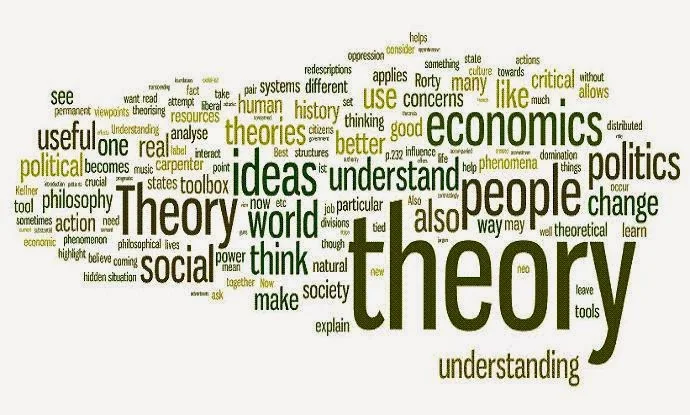In Sociology. a theory is a statement or series of statements that use concepts to explain problems, actions, or behaviours. (R.T. Sehaefer)
Theory :
Theory is a mental activity. It is a process of developing ideas that can allow us to explain why events should occur.” (Jonthan. H. Turner)“Theory is a set of interrelated propositions that allow for the systematization of knowledge, explanation and prediction of social life and the generation of new research hypothesis.” (Geoge Ritzer)
A theory has the following elements :
1. Concepts
2. Variables
3. Statements
4. Formats
Human curiosity always kept him in motion for knowing secrets of nature. In the beginning he tried to understand his environment through observation and adapted himself with it. Gathered knowledge through natural phenomena and incidents by molding it into his concepts and afterwards he began to formulate the hypothesis based upon his concepts. When folk and imaginary knowledge merged into folk wisdom, then reliable theories based upon daily experience came into existence. These theories became part of human knowledge. People began to test them in their practical life and the facts that came to light were either nearer
or farther from the theories. This observation of wise people inclined them to test the present theories again which gave rise to research. Thus the theories that stood to the test became facts and proved helpful in improving social life but these facts also became the cause of new theories because of mutual organization. Thus there is a series never ending in the increase of knowledge. A theory and research relation can be represented by a diagram.
A theory and research are mutually inclusive concepts affecting each other. Here is a detail of affects explaining the mutual relation of theory and research.
1. Functions of Research with reference to theory :
When sociologists test a theory to do research, they keep the following functions before them.
(i) Theory that is not understandable should be explained.
(ii) The proof of being functional of a theory in the present social conditions.
(iii) To reject the theory so that new theories may be formulated in the height of new facts for specific social conditions.
(iv) An amendment or addition in theory in the light of different social facts and changed social conditions and to make it able to be acted upon in harmony with the demand of time. The research, to achieve these aims, has great effect on theories, the detail is given below.
Effects of Research on Theory :
(i) Research explains the practical benefits of theory and by showing their importance in social life provides a help to get guidance from them.
(ii) Research either accepts or rejects a theory which helps in making the store of knowledge more effective and authoritative. By ending in non functional and obsolete theories the adaptability of social life is made better.
(iii) Research explains new facts in addition to the present facts which cause an amendment and refinement of the theory.
(iv) Research explains the present concepts in a new way or there is reconceptualism of theory or its revival and that becomes effective again in the social situations.
(v) Research brings about new theories by discovering new facts giving rise to new theories because the logical relation of facts formulates theories.
(vi) Research points out the reasons which solve the problems and new facts come into light, a help is there to understand these theories the similar social situations of other societies and easy to understand.
(vii) When a research proves the truth of-a theory, foretelling capability is produced in the theory. If such conditions are produced the direction of situation can provide a plan to control the situation and problems.










0 Comments